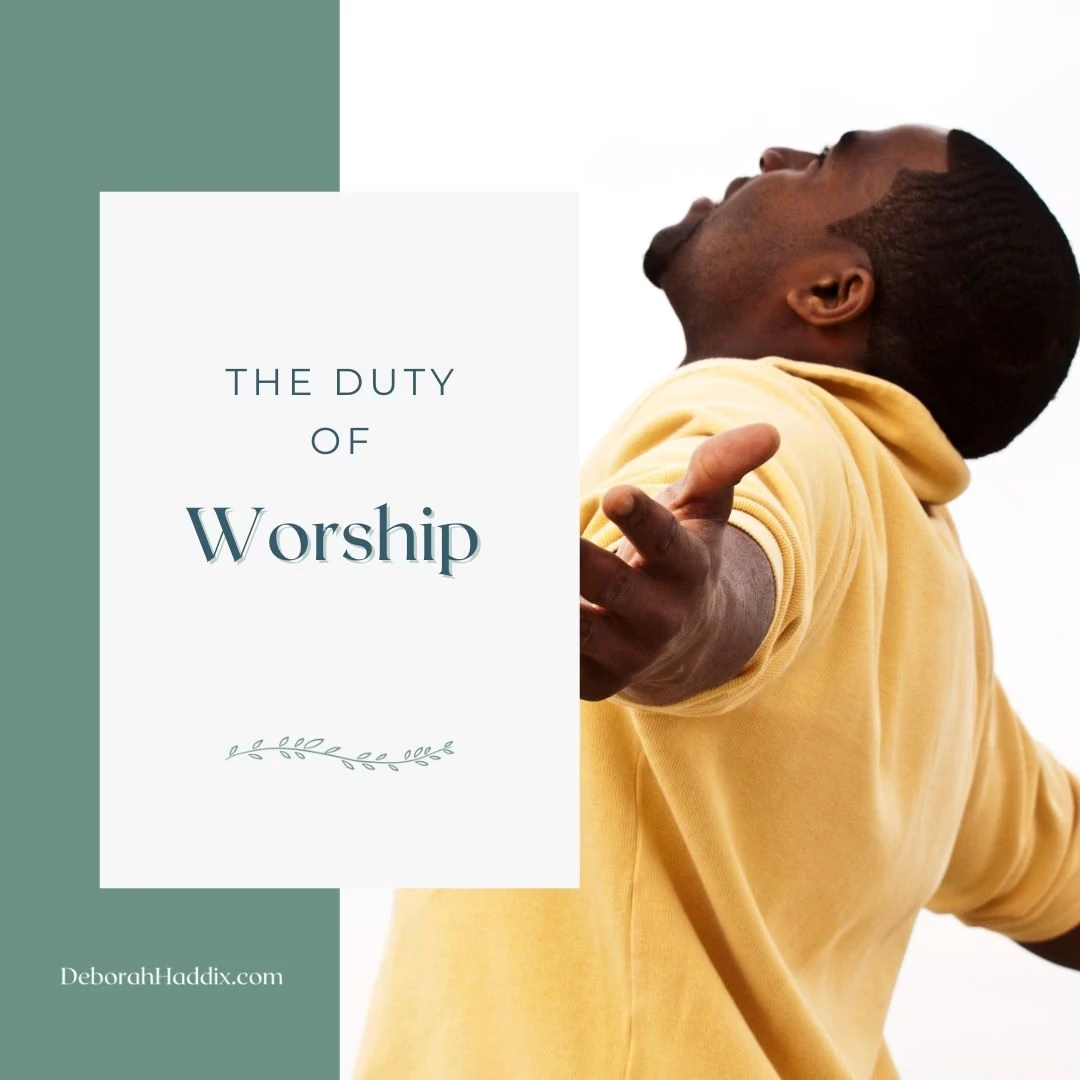We introduced and examined the spiritual discipline of worship in February 2024. But, truthfully, who among us can’t do with a little refresher?
What is Worship?
According to Merriam-Webster, worship means: (1) To honor or reverence as a divine being or supernatural power (2) To regard with great or extravagant respect, honor, or devotion (3) To perform or take part in worship or an act of worship.
This, of course, is a dictionary definition. Recall from our post, The Spiritual Discipline of Worship, that nowhere in Scripture is a definition of worship found. Although much is said about worship in The Bible, a definition is never given.
See our collection of helpful, biblically based definitions of worship here.
Where and How Do We Worship?
Worship then, is the spiritual practice of praising God’s greatness, goodness, and beauty in words, music, ritual, and/or silence.
Worship to our Heavenly Father can be offered anytime, anywhere, and in a multitude of ways. Yes, it is singing. Yes, worship can be many believers gathered in a church lifting their voices together before a sermon. But it is so much more – it is an opportunity to adore and to honor God! Worship can be the extending of grace to a child, deferring to your spouse in a disputed matter, enjoying a sunset, or washing the dishes.
The wise Puritan, Thomas Watson, wrote:
The first fruit of love is the musing of the mind upon God. He who is in love, his thoughts are ever upon the object. He who loves God is ravished and transported with the contemplation of God. “When I awake, I am still with thee” (Ps. 139:18). The thoughts are as travelers in the mind. David’s thoughts kept heaven-road. “I am still with Thee.” God is the treasure, and where the treasure is, there is the heart. By this we may test our love to God. What are our thoughts most upon? Can we say we are ravished with delight when we think on God? Have our thoughts got wings? Are they fled aloft? Do we contemplate Christ and glory? … A sinner crowds God out of his thoughts. He never thinks of God, unless with horror, as the prisoner thinks of the judge.
The Duty of Worship
The Westminster Shorter Catechism asks, “What is the chief end of man?”
Its answer, “Man’s chief end is to glorify God, and to enjoy Him for ever.”
Turning our minds toward worship, the first thing we must do is determine our basic duty. And while no definition for worship can be found in the Bible, our duty is clearly defined in its pages by the God who created us in His image and redeemed us by the blood of His Son.
In this effort to determine our duty, Thomas Watson is again helpful. In his A Body of Divinity, he states that our duty consists of four things: appreciation, adoration, affection, and subjection.
APPRECIATION
To glorify God is to set Him highest in our thoughts. To show appreciation means to abound in thanksgiving toward Him for what He has done for us through Jesus Christ. To show appreciation sounds easy. However, in our humanness, the hindrance to being appreciative is pride. To acknowledge God as the give of all things, we must first admit that we are poor.
ADORATION
Our adoration, our worship, can come through faith alone. To adore God is to ascribe to Him all honor and praise. When we adore God, we acknowledge that He alone is worthy of all our awe and reverence. He alone is worthy of our worship.
AFFECTION
Mark 12:30 says, “And you shall love the Lord your God with all your heart and with all your soul and with all your mind and with all your strength.” This is affection, loving the One who is altogether lovely.
SUBJECTION
Subjection is how we enter the kingdom (Romans 10:9), and it is how we live in the kingdom (Philippians 2:5-7). We submit to His will and are ready to always serve Him. Our duty is to dedicate ourselves completely in obedience to God.
In a nutshell, faith in Christ makes worship possible. The outcome of our faith is a love for Christ that is accompanied with an emptying of ourselves.
Worship then, involves a life that is wholly directed toward God as the Lord of all and the Savior of the redeemed.
Worship should become the constant undertone of our lives for it is the central purpose of our lives.










